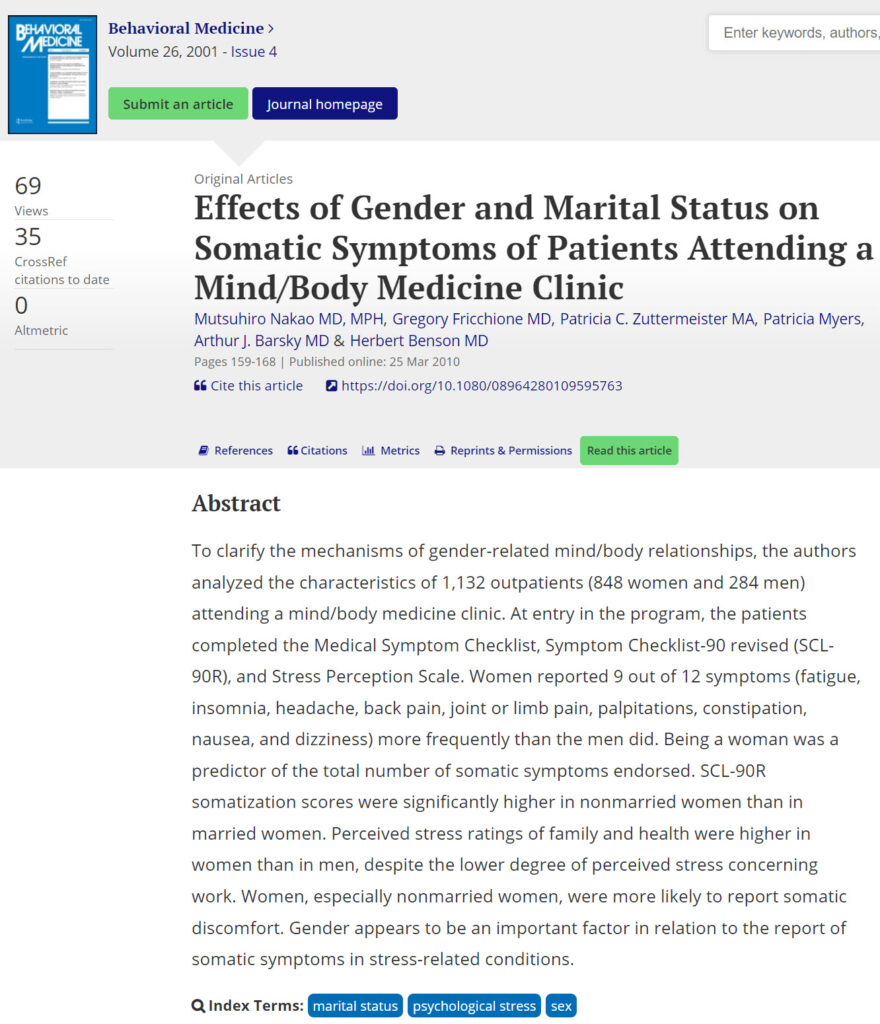To clarify the mechanisms of gender-related mind/body relationships, the authors analyzed the characteristics of 1,132 outpatients (848 women and 284 men) attending a mind/body medicine clinic. At entry in the program, the patients completed the Medical Symptom Checklist, Symptom Checklist-90 revised (SCL-90R), and Stress Perception Scale. Women reported 9 out of 12 symptoms (fatigue, insomnia, headache, back pain, joint or limb pain, palpitations, constipation, nausea, and dizziness) more frequently than the men did. Being a woman was a predictor of the total number of somatic symptoms endorsed. SCL-90R somatization scores were significantly higher in nonmarried women than in married women. Perceived stress ratings of family and health were higher in women than in men, despite the lower degree of perceived stress concerning work. Women, especially nonmarried women, were more likely to report somatic discomfort. Gender appears to be an important factor in relation to the report of somatic symptoms in stress-related conditions.
Effects of gender and marital status on somatic symptoms of patients attending a mind/body medicine clinic
Publication
Behavioral Medicine
Volume 26, Issue 4, pp 159-168
Abstract
Web and Email Links
Related Listings
Journal
PLOS ONE
Mind-body practices that elicit the relaxation response (RR) have been used worldwide for millennia to prevent and treat disease. The RR is characterized by decreased oxygen consumption, increased exhaled nitric oxide, and reduced psychological distress. It is believed to be the counterpart of the stress response that exhibits a distinct pattern of physiology and transcriptional profile. We hypothesized that RR elicitation results in characteristic gene expression changes that can be […]
Journal
AAAS Eureka Alert
Researchers identified genes and biological pathways linked to immune regulation, metabolism, and circadian rhythm in people who reduced their hypertension after eight-week relaxation response training
Journal
Psychiatry
In the Western world today, there is a growing interest in nonpharmacological, self-induced, altered states of consciousness because of their alleged benefits of better mental and physical health and improved ability to deal with tension and stress. During the experience of one of these states, individuals claim to have feelings of increased creativity, of infinity, and of immortality; they have an evangelistic sense of mission, and report that mental physical suffering vanish (Dean). […]

